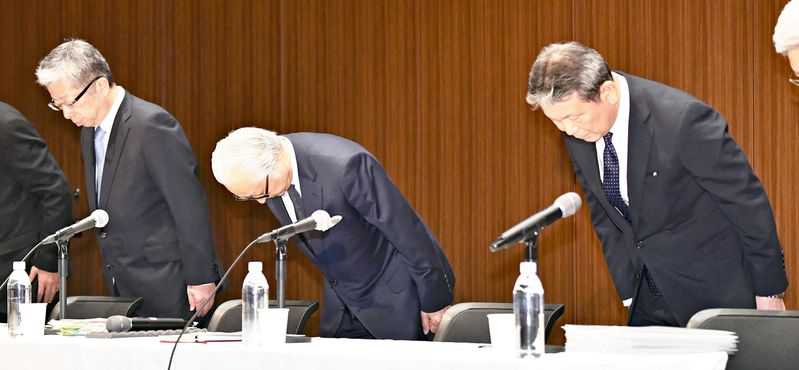Japan Post: 6,327 cases of Kampo sales irregularities
02 October, 2019

The Japan Post group said Monday it had confirmed 6,327 cases of irregularities in the sale of its insurance products as of Friday that were suspected of violating the law or internal rules.
The cases were among some 183,000 Kampo insurance contracts that the Japan Post group has said may have created disadvantages for holders, according to an interim report released by the group. The contracts were handled by Japan Post Insurance Co. in the five years from fiscal 2014, according to an announcement it made in July.
The group will refrain from selling insurance products this year to focus on its investigation into the scandal and preventive efforts, and is planning to restart the sales in stages from January.
“Once again, we are deeply sorry for causing trouble to our customers,” Masatsugu Nagato, president and chief executive officer of Japan Post Holdings Co., the parent of Japan Post Insurance, told a press conference in Tokyo.
“Dedicating ourselves to rebuilding customer trust is our responsibility,” he said, denying he plans to resign over the scandal.
Japan Post Insurance President and CEO Mitsuhiko Uehira and Kunio Yokoyama, president and CEO of Japan Post Co., another Japan Post Holdings unit, also denied plans to step down. Japan Post Co. has been commissioned to sell Kampo insurance products through its post offices.
Japan Post Insurance said it has confirmed some 1,400 cases of possible law violations, including false explanations to customers, among the 6,327 cases in question, up sharply from the 73 cases it previously reported to the Financial Services Agency.
The number of Kampo insurance contracts violating the law or internal rules may increase further as the investigation has been completed for only some 40 percent of the 183,000 contracts.
During the five-year period, post office workers encouraged policyholders to switch to new products in order to receive more sales incentives. As a result, some policyholders made double payments on insurance premiums for their new and old contracts while others became temporarily uninsured.
TAG(s):
